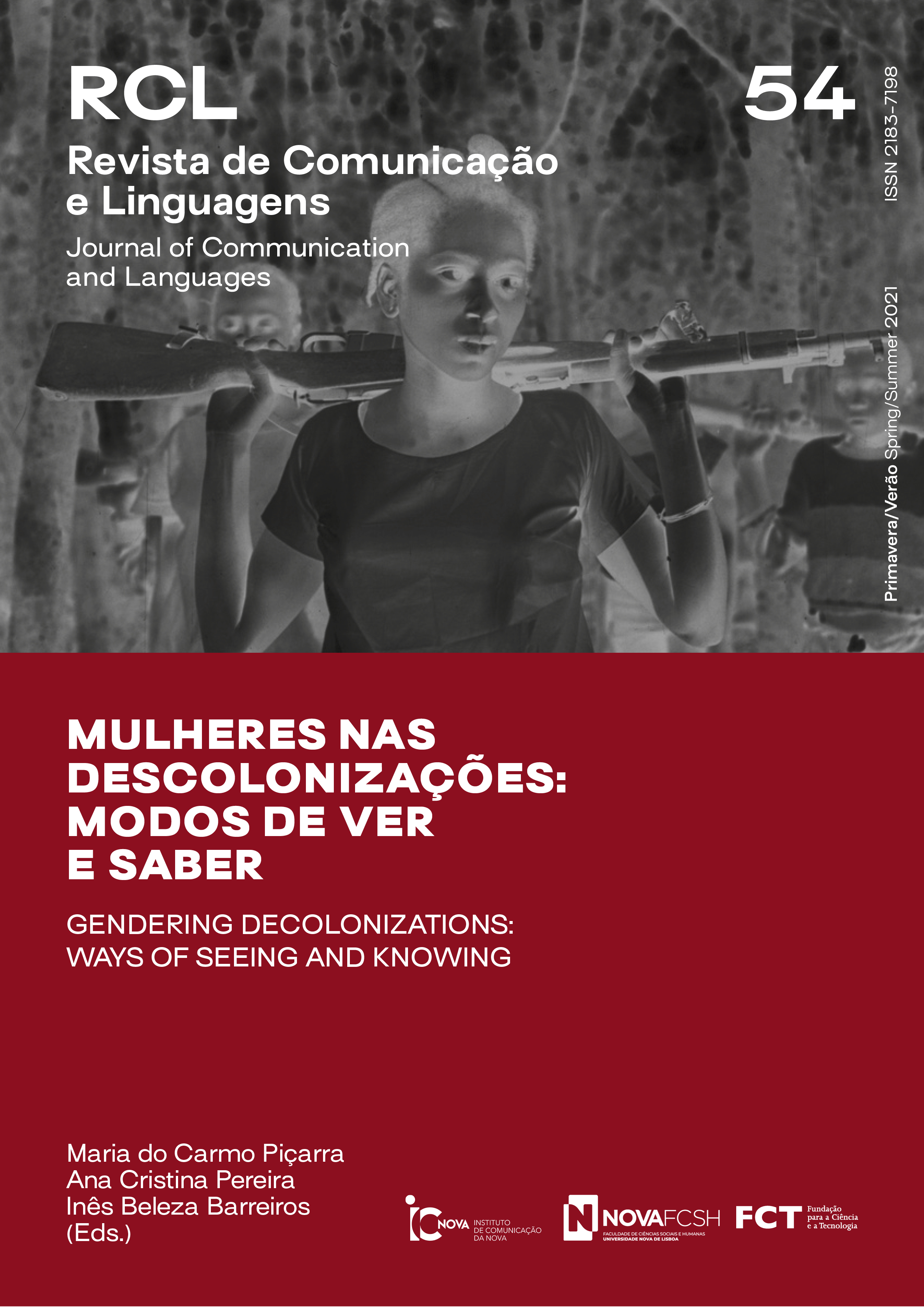Gendering decolonizations: ways of seeing and knowing
Abstract
This present issue of RCL departures from an initial and initiatic question: where are the women in the decolonisation processes? It then evolves into more specific interrogations. How have the women in the former Portuguese colonies perceived these liberation struggles? How have their perspectives been, or not, assimilated into the (re) imagining of colonialism? Is there an explicitly female vision of liberation from Portuguese colonialism? What knowledge and awareness do we have of/about these perceptions? And how do these intersect with the views of those women filmmakers, artists, curators, and academics who, today, question the archives, public and private, explore and visually reinvent their memories, and reimagine colonialism? What role does academic research, archive conservation policies, programming and curatorial practices play in the questioning or, by contrast, protraction of official “politics of memory”?
In the process, however, we have welcomed proposals that extended the strict thematic (and even geographic) latitude of this issue, but which responded to the challenge of reflecting upon “modes of seeing and knowing” of women involved in decolonisation processes, past and present, and to a specific editorial concern: how are women — in their academic, theoretical and/or artistic practices — responding to the current decolonial turn?
Copyright (c) 2021 Revista de Comunicação e Linguagens

This work is licensed under a Creative Commons Attribution-NonCommercial 4.0 International License.


